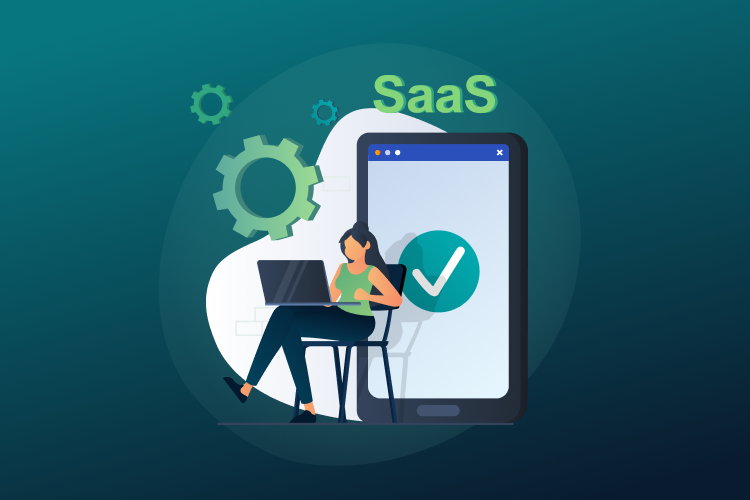
As a SaaS business owner – you should be even more concerned about interview questions than your candidates.
You must be wondering why?
It is just another interview for your candidates – but for you, it is the product’s future on the line.
This is why we hand-picked a list of Questions To Ask vs. Questions To Avoid finding a perfect fit.
Before we start with questions, it would be helpful to make an interview guide. The reason why is you can quickly lose track of time or unintentionally change the course of the interview.
Whatever question you choose, keep in mind that all of them get in line with the leading segmentation guide:
- Product Owner Role
- Engagement with External Stakeholders
- Internal Stakeholders Leverage
- Product Roadmap Planning
- User Stories and Product Backlog
- Sprint Planning and Implementation
Once you have clear interview guidelines – it is time to start a hunt for perfect SaaS Product Owner questions.
Let’s dive in.
Questions you should ask SaaS Product Owner candidate
Q1. How would you describe your role as Product Owner?
It is a great open-ended question on how better to understand the candidate’s perception of their role. SaaS Product Owner is a leadership position. Any mention of that would certainly be a plus. If a candidate mainly refers to something like “Product Owner is the one creating user stories,” that is a great starting point.
Q2. How would you describe a distinction between the SaaS Product Owner and SaaS Product Manager position?
It takes too much time to cover all responsibilities: from communication to stakeholders and customers to organization of the process’s operational work. The bottom line is that candidates must be aware of two distinctive roles. The Product Manager is responsible for strategic aspects, while the Product Owner is a more tactical role.
Q3. How do you deal with uncooperative stakeholders?
How SaaS Product Owner deals with issues and roadblocks is a big part of understanding all the processes, including communication with stakeholders. Often, SaaS Product Owners have to deal with uncooperative stakeholders, which can be a massive bump on the road. While every person has a different way of dealing with specific issues, the SaaS Product Owner always has to be diplomatic. In the end, stakeholders are the reason the product exists in the first place.
Q4. Do you have experience working in different teams?
SaaS Product Owner needs to make a distinction between all teams involved in product development. Sometimes they have experience working in a Scrum product team, but that not always the case. Product Owner, Scrum Master and Developers work together with user stories, sprint measures and product requirements that include developing, coding and testing.
Q5. How would you redesign our product?
The answer you want to hear is understanding the first step in designing or redesigning a product, building a strategic roadmap, and outlining all the steps included. Focus on internal and external communication involving customers, engineers, the customer support team, and other stakeholders.
Q6. What should a good user story look like?
It is a great way to check the candidate’s experience of a user story’s structure. SaaS Product Owner should be the one who understands all the stakeholder’s needs and expectations. To make a successful user story is in power to control the release of user stories.
Q7. How do you go about backlog prioritization?
Backlog prioritization is crucial to ensure that all the right features are included in the final product avoiding technical debt. It will show your candidate’s ability to prioritize changes to existing product features, bug fixes, or new features launch. Suppose the candidate mentions the MoSCow method or explains Stack Ranking, which can be a good indicator of success.
Q8. Sprint planning requires a lot of resources. Should you release all of them?
It is a breakpoint for candidates understanding the difference between Sprint planning and Releases planning. Experienced SaaS Product Owner needs to know that sprint does not have to be released each time. Product deployment is a planning activity and can be based on every sprint. On the other side, Product release is purely business and strategic activity.
Questions you would like to avoid in the SaaS Product Owner interview
Before we start with a popular interview question with no real value, you need to get some things straight. First of all, there is a list of illegal interview questions you should avoid by any means. If you don’t want a potential lawsuit on your back or face awkward situations – keep in mind these topics.
Illegal interview topics:
- Age
- Arrest and/or Conviction Record
- Ancestry, Color, National Origin or Race
- Creed
- Disability
- Genetic Testing
- Honesty Testing
- Marital Status
- Military Service
- Pregnancy or Childbirth
- Sex or Sexual Orientation
- Use or nonuse of lawful products off the employer’s premises during non-working hours
Let’s get back to what are the bad interview questions
A bad interview question does not provide any significant value to the interviewer or hiring team. Below you’ll find a list of popular interview questions that are asked but do not provide real value.
Here is what you don’t want to ask.
Q1. Tell me about yourself?
This question shows that you have not prepared for the interview. It may look like all information provided in the CV or application letter are irrelevant. With no clear direction in terms of the information, it leaves you open to discrimination litigation. Instead, ask about specific topics about the candidate.
Q2. What would you tell me about yourself growing up?
Asking these questions is not the best way to assess a candidate’s current abilities or fit for the SaaS Product Owner role. A question like this is highly inappropriate and irrelevant.
Q3. Why should we hire you?
Keep in mind that your job is to win these people over, not necessarily the other way around. The chances are that if you brought them in for an interview, it is because they meet the qualifications for your role. Don’t waste your chances of landing a great Product Owner just because you want to turn an interview into a competition for your approval.
Q4. What is your biggest weakness?
This question is a poor choice because it does not provide real insight into the candidate’s current skills. It is something everyone is expecting and has a prepared answer. Change this question with competency-based interview questions that ask the candidates how they would have improved in specific work scenarios.
Q5. Why do you want this job?
Everyone has bills to pay. It is another question that seems legit but still makes candidates feel uncomfortable. People don’t like to talk about their intentions, especially when the answer might be more functional than aspirational. It would be best to focus more on people’s ability to do the job, rather than asking awkward and irrelevant questions.
Q6. Describe a time when you failed and how you handled it.
This is a question that feels like a trap. Keep in mind that candidates want to show their best in an interview, so you can’t expect an honest answer without exposing undesirable weaknesses. With a question like this, you can get tangled up in cliches and end up sounding insincere.
Q7. Describe yourself in three words.
Why is this a wrong question? Because candidates will think of whatever words will help them get the job.
Instead, try with “Can you tell me about a time where there was a challenging team project? How did you prioritize the tasks that needed to be done? Did you go out of the way to help your team?” etc.
Q8. Where do you see yourself in 5 years?
Do you think it is reasonable to ask someone about their plans? Still, this kind of question can make candidates feel uncomfortable. And it doesn’t tell you much about their current skill set. The solution to this is in specific questions about role and professional expectations in the first month, quarterly and yearly.
Bottom line
We hope all the questions listed and guidelines provided will help you crack your interview and find the best fit for your SaaS product.
Finding a great employee is a cat and mouse game – so keep your head up and don’t waste your time on vanity questions and irrelevant information.
If you have some exciting interview questions to share with us – feel free to comment below.
Happy recruiting!
Author
Jovan
Creating growth strategies for B2B SaaS products is one of my specialties. Over the last seven years, I've worked closely with a number of SaaS founders, VPs of marketing, and marketing managers to help them scale their businesses faster by applying growth marketing approaches. Goals. Grow and expand the agency to help even more B2B SaaS businesses.








